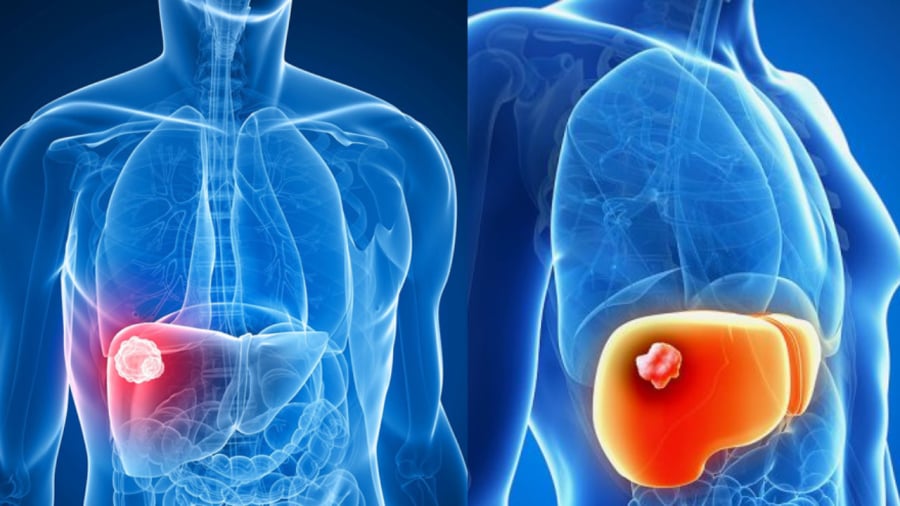## 5 High-Risk Groups for Liver Cancer
5 Groups at High Risk for Liver Cancer
- Individuals with Hepatitis Virus Infection
Chronic infection with hepatitis B virus (HBV) or hepatitis C virus (HCV) puts individuals at a significantly increased risk of cirrhosis. If left untreated, this condition can progress to liver cancer. Research indicates that approximately 10-20% of individuals with cirrhosis may develop liver cancer.
In Vietnam, about 20-30% of liver cancer patients have a history of HCV infection, while 60-70% have been infected with HBV.
- Alcoholics
Prolonged and excessive alcohol consumption has numerous negative effects on health, impacting the liver, digestive system, and nervous system. Over time, healthy liver cells are replaced by scar tissue, resulting in cirrhosis. If untreated, cirrhosis can lead to liver cancer.
The mechanism by which alcohol causes cancer involves the production of acetaldehyde during the metabolic process, facilitated by enzymes. Acetaldehyde has been implicated in various types of cancer in humans. Ethanol, the primary component of alcohol, is classified as a carcinogen by the World Health Organization (WHO).
Long-term alcohol abuse also weakens the immune system and impairs the liver’s detoxification abilities, creating an environment where other diseases can flourish and potentially progress into cancer.

- Overweight and Obese Individuals
Being overweight or obese not only leads to a sedentary lifestyle and cardiovascular issues but also increases the risk of liver cancer, as well as stomach, cervical, and ovarian cancer in women. Obesity is a risk factor for hepatitis, and prolonged hepatitis increases the likelihood of liver cancer.
- Diabetics
Individuals with diabetes have a higher risk of developing liver cancer compared to the general population. Doctors attribute this to elevated insulin levels and non-alcoholic fatty liver disease. As this condition worsens, the liver weakens, increasing the likelihood of liver failure and, consequently, liver cancer.
- Consumers of Contaminated Food
Consuming spoiled or moldy food is extremely dangerous. Improperly stored food can be contaminated with Aspergillus flavus, a fungus that produces aflatoxin, a potent carcinogen. Aflatoxin quietly enters the body and gradually destroys liver cells, leading to liver cancer.
Individuals belonging to these high-risk groups should be vigilant about their health and consider regular cancer screening. Adopting a healthy diet and lifestyle can also boost immunity and prevent diseases.
Preventive Measures Against Liver Cancer
To enhance overall health and reduce the risk of liver cancer, it is essential to focus on diet and daily habits. Vaccination against hepatitis B is a proactive step to protect oneself from this virus. Additionally, limiting alcohol consumption, abstaining from smoking, and refraining from using prescription drugs without medical advice are crucial, especially for individuals with viral hepatitis or cirrhosis.
It is imperative to avoid self-medication and only take medications under medical supervision, as the liver is responsible for metabolizing drugs. Improper medication use can impair liver function and increase the risk of liver cancer, especially for those with pre-existing liver conditions.
Furthermore, it is essential to refrain from consuming moldy or spoiled food, as these contain potent liver cancer-causing agents.





































